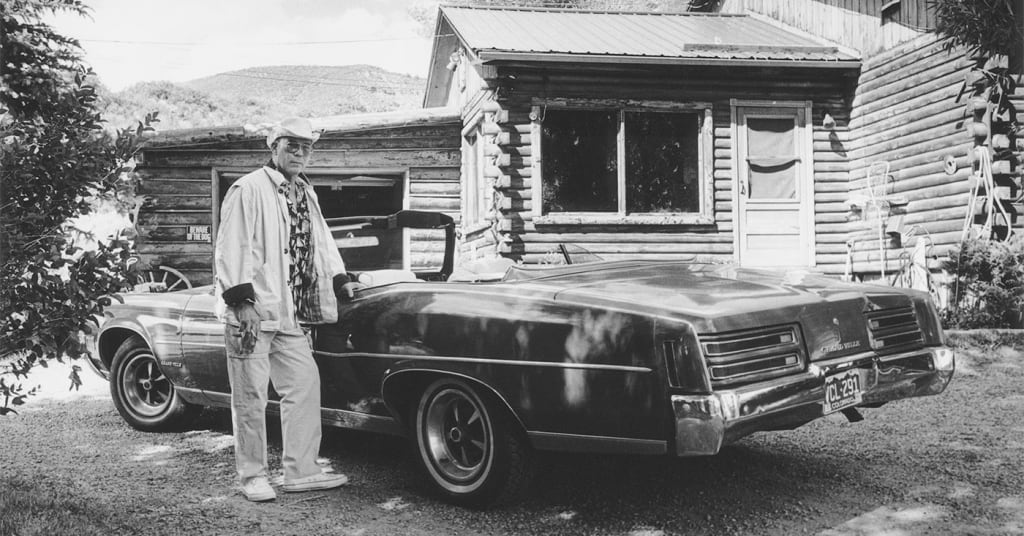The Enduring Legacy of 'Fear and Loathing: On the Campaign Trail '72'
Hunter S. Thompson's raw and gritty masterpiece continues to inspire and guide the waves.

It's a little past midnight and I am sitting alone in my new apartment. Two weeks have passed since the move here, and there's been plenty of time to get accustomed. The place is located at the back-end of a complex of four apartments; it only has one room and bathroom, with a small corridor leading to the kitchen, and it has a/c, which was a must in my book. The environment has been perfect to read and relax, the one thing that impossible for me to do in the place I used to live.
I have spent most of my time studying and revisiting books from my past. The one author I couldn't keep off my mind during this whole process was american journalist Hunter S. Thompson. About four years ago he was my biggest literary influence; he introduced me a world of journalism I had never seen before, completely twisting and rearranging my original conception of the concept. The lessons and ideas from that first interest are something I carry to this very day.
It's hard to describe what exactly drove me to his writing, but the crisp, fluent, and hypnotic prose is a great start. Generation of Swine was the first book I had picked up recently. It was the only one in my collection I hadn't read before. It presents an image of the 80s' that I was not used to seeing. While this new read was enjoyable, it was my re-reading of Fear and Loathing in The Campaign Trail '72 that really got my motor neurons going.
Fresh off of writing and publishing Fear and Loathing in Las Vegas, Hunter set out to cover the 1972 Presidential Race as his next journalistic endeavor. He spent almost the entirety of the year covering the campaigns of Democratic Party hopefuls who had an unclenching thirst to dethrone Richard M. Nixon from the White House and cast him to the depth from which he came from. Every month he was assigned a piece to publish for Rolling Stone magazine until election day and its aftermath, a task he was comically inept to always do on time, spending many speed-induced nights cranking up pages at the last minutes; they would later compiled these articles into a full-length book published in 1973 to great critical and commercial success, cementing Thompson's legacy as one of the best iconic journalists of the decade.
Hunter was riding the high creative wave sparked by Fear and Loathing in Las Vegas down to the last breath when writing in the Campaign Trail. His trademark style of Gonzo journalism - a style of reporting where the reporter finds himself as the protagonist's piece and serves as is subjective constructor, was used to perfect pitch. It captured the odd and psychedelic-inducing absurdity of the whole process in humorous and satirical forms. As Hunter best explained in the book's introduction, there was no need to protect his sources or take the idea so seriously because he didn't care to gain their trust; this would only be a one-time thing, so he put all his chips on the table in a blaze of glory, and the results were phenomenal.
The master-stroke of the book is the sheer blending of fact and fiction. It wasn't made out of incompetence, malice (well…), or a lack of caring, but had a very distinct and important purpose. Hunter was trying to make a point about truth in American politics and politics in general. The truth really doesn't matter, it's the results, the final call.
The book begins in an almost naïve tone. Hunter chronicles his journey to D.C. and divulges his expectations and thoughts on the whole circus. He does a wonderful job at capturing the tone and mood of the time, seamlessly transporting the modern-time reader to a time and place they probably never saw or felt. The effects are akin to that of watching cinema, and the same feeling carries throughout the entire book through the development of a character ark for Hunter. The whole thing plays out like a three-act story, and there's a whole slow-burn quality to it as well. Perhaps this is where Thompson gets his approval, in the cinematic imagery he instils on his readers.
Divided into the months he was assigned to cover; the campaign coverage begins by painting a clear picture of the morbid process. Hunter gives a thorough detail of the big players from the race, names who mean very little to me and to many others who only know the one's in the history books. He shows an appropriate disdain for all, holding them accountable and seeing behind their weak and pathetic lies.
It is around February and March that he starts to pay close attention to George McGovern, the man who would ultimately wound up winning the Democratic nomination against all odds. Hunter covered and saw his potential before many others did, and part of the book's appeal is how he slowly chronicles McGovern's rise to the top. It slowly builds into a crescendo by June and July, when McGovern officially wins the nomination. Thompson conveys an atmosphere of hope and redemption for the events of 1968 in a high and mighty trip. It seems for brief period that the Democrats have a fighting chance to dethrone Nixon and play the heroes for the American public. However, after this moment, everything around the party began to collapse.
The final chapters of the book can best be described as a deranged, haunting, and suffocating bad acid trip. McGovern began to slip drastically in the polls, had little to no backing, made a horrible choice as his VP pick, and by the end of it didn't even stand a fighting chance to beat Nixon. The final results proved this to be emphatically true; Nixon won in one of the biggest landslide elections in history that saw McGovern win only one state (Massachusetts). The Watergate scandal wasn't the behemoth it became due to the cover-up just beginning to take (even though it was covered briefly in the book). Not mention, Nixon was just too damn popular. Hunter and many could see through the bullshit, but many more couldn't. It was a much simpler time to fool people those days, although frankly what's the difference?
The events led to Hunter's dissolution from politics, and brought in a more cynical and pessimistic persona. It was a around the end of the book and some portions in the middle that Hunter began to use a more ramble and rapid approach to discussing the campaigns. The effect reads as a story of isolation and debauchery. The story switches from optimism to decay and tragedy. It became about the hubris of man and an omen for the incoming political saga that would be Watergate.
Nearly 50 years after publication, the book has been re-discovered an important document of creative and investigative journalism. Many of the tropes, styles, and techniques Hunter used to tell his story are now being used more than ever. People began to discover that there truly was a method and logic to the madness, that it was all for the purpose of making a point about the truth and hypocrisy of the dirty and rotten system.
About the Creator
Ezra I. James
Absurd essayist from the outskirts of Shambhala.
Enjoyed the story? Support the Creator.
Subscribe for free to receive all their stories in your feed. You could also pledge your support or give them a one-off tip, letting them know you appreciate their work.






Comments
There are no comments for this story
Be the first to respond and start the conversation.